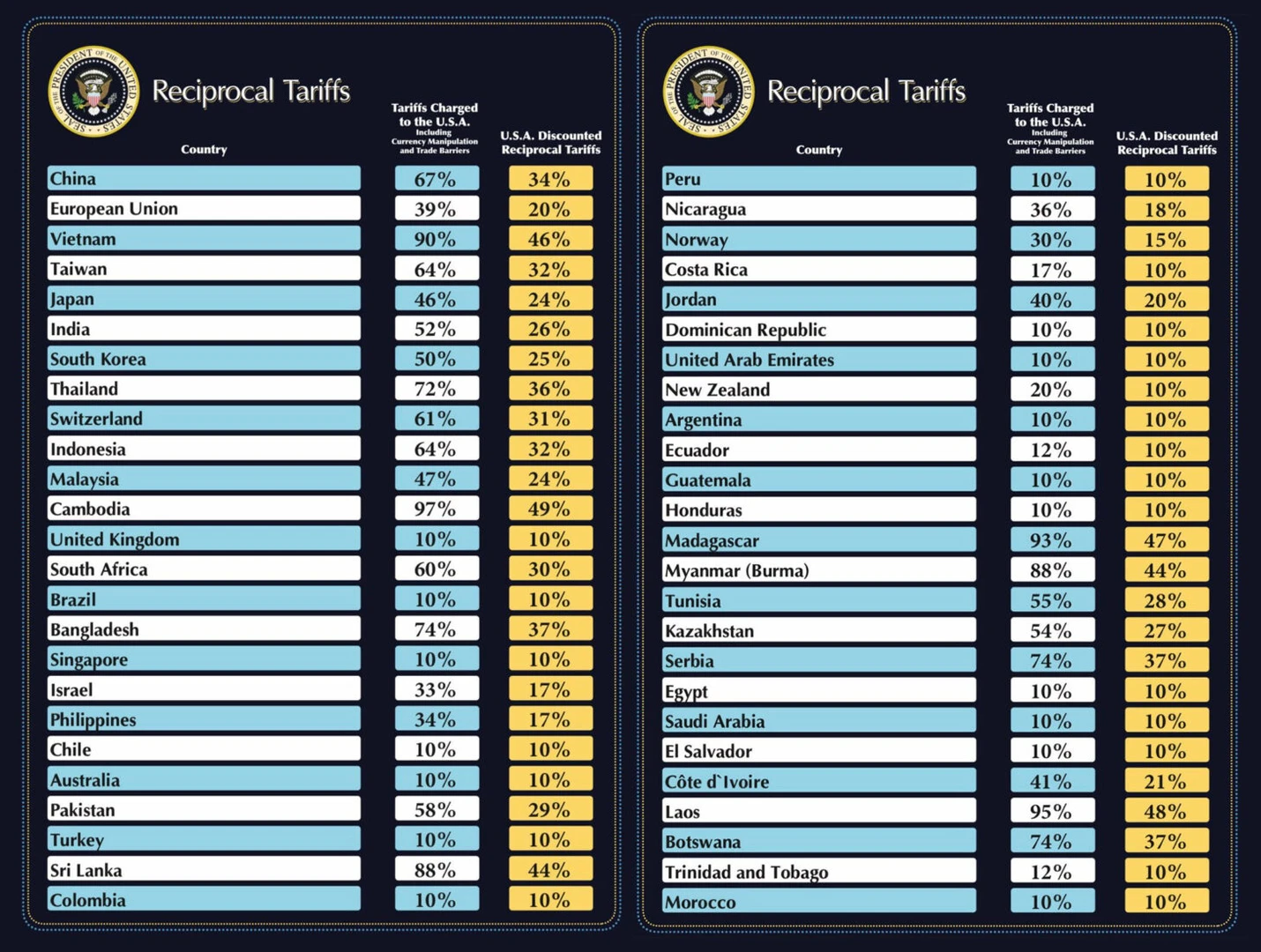IMF raises expectations over Turkish economy while downgrading global outlook
 A view of the logo of the International Monetary Fund (IMF) during the 2025 Spring Meetings of the World Bank/International Monetary Fund (IMF) in Washington DC, United States on April 21, 2025. (AA Photo)
A view of the logo of the International Monetary Fund (IMF) during the 2025 Spring Meetings of the World Bank/International Monetary Fund (IMF) in Washington DC, United States on April 21, 2025. (AA Photo)
In its April edition of the World Economic Outlook report released Tuesday, the International Monetary Fund (IMF) slightly raised its growth forecast for Türkiye’s economy in 2024, from 2.6% to 2.7%.
Citing escalating trade tensions and rising policy uncertainty, the IMF lowered its global growth projections to 2.8% for 2025 and 3% for 2026. In its January forecasts, the IMF had projected global economic growth of 3.3% for both years.
The report noted that Türkiye’s growth is expected to bottom out in 2025, before accelerating to 3.2% in 2026, supported by recent shifts in monetary policy. It also highlighted that these projected growth rates remain significantly below the historical average of 3.7%.
Inflation forecast raised, deficit risks ease for Türkiye
The IMF forecasts Türkiye’s inflation at 35.9% for this year and 22.8% for next year, while projecting the unemployment rate at 9.4% and 9.2%, respectively.
Türkiye’s annual inflation stood at 38.1% in March, extending its downward trend for a tenth consecutive month, according to the Turkish Statistical Institute (TurkStat). Meanwhile, Türkiye’s unemployment rate fell to 8.2% in February.
The IMF also revised Türkiye’s current account balance-to-GDP ratio for 2025 from -2.1% to -1.2%, and projects the same ratio for 2026.
Türkiye’s Treasury and Finance Minister Mehmet Simsek has repeatedly emphasized that declining energy prices will reduce the country’s energy import burden. According to March trade figures released by the Trade Ministry, Türkiye’s export-to-import coverage ratio rose from 76.3% to 89.1% when energy was excluded.
Oil prices dropped to their lowest level following U.S. President Donald Trump’s announcement of reciprocal tariffs on April 2, with WTI crude dipping below $60 per barrel during that week.
| Indicators | 2025 | 2026 |
|---|---|---|
| Current account balance-to-GDP ratio | -1.2% | -1.2% |
| Türkiye inflation forecast | 35.9% | 22.8% |
| Unemployment rate | 9.4% | 9.2% |
| Economic growth | 2.7% | 3.2% |
Global outlook worsens amid Trump tariffs
The IMF report stated that following an unprecedented series of shocks in recent years, global economic growth remained steady but below expectations throughout last year, and is expected to remain subdued this year. It also noted that governments around the world are reprioritizing their policy agendas in response to these changes.
The report highlighted that due to a series of new tariffs announced and implemented by the United States—and the retaliatory actions taken by trade partners—global tariff levels have reached levels not seen in the past century. This has created a major negative shock to global growth.
On April 2, U.S. President Donald Trump imposed reciprocal tariffs of at least 10% on exports from 185 countries to address the U.S. trade deficit. Türkiye was among the least affected, facing the minimum rate. In contrast, China was initially hit with a 34% tariff, the European Union with 20%, and Japan, the U.S.’s largest trading partner, with 24%. Following tit-for-tat measures from both sides, the U.S. raised its tariffs on Chinese goods to 145%, while China responded by increasing its tariffs to 125%.

However, although Trump paused the levies for 90 days—excluding China—trade tensions have continued to escalate, negatively impacting financial markets.
The report stated, “The rapid escalation of trade tensions and the extremely high level of policy uncertainty are expected to significantly affect global economic activity.”
It further noted that global headline inflation is now expected to decline more slowly than previously projected in January, reaching 4.3% in 2025 and 3.6% in 2026, partly due to the inflationary impact of escalating trade tensions.
The IMF downgraded its 2025 growth forecast for the U.S. economy from 2.7% to 1.8%, and the 2026 forecast from 2.1% to 1.7%, citing growing policy uncertainty, trade tensions, and weakening demand momentum.
The Eurozone’s growth forecast was also revised downward—from 1% to 0.8% for this year, and from 1.4% to 1.2% for 2026.
In the category of emerging markets and developing economies, the growth forecast for China was cut from 4.6% to 4% for this year, and from 4.5% to 4% for next year.



